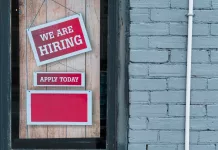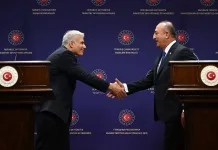Burkina Faso’s second military coup d’etat of 2022 took place on the early morning of the 30th of September. It marked the country’s ninth coup since gaining independence from France in 1960. The coup ousted interim president and Junta leader Paul-Henri Sandaogo Damiba. Since then, a separate faction of the country’s military has assumed the highest office of the nation, led by military captain Ibrahim Traore. Damiba had also assumed this office through a similarly orchestrated coup in January 2022, which ousted the then democratically elected President Roch Marc Christian Kabore.
Captain Traore’s military address was streamed on the national broadcaster, and marked the coup. In his speech, he announced the deposition of incumbent Damiba, dissolved the sitting interim government and suspended the constitution. Furthermore, the new Traore-led administration imposed several nation-wide restrictions including the indefinite closure of national borders; suspension of all political and civil activities, and a nation-wide curfew between 9pm and 5am until otherwise communicated.
As part of Captain Traore’s political discourse, he accused former interim president Damiba of further strengthening relations with the past colonial power. Following the coup, the country’s capital Ouagadougou has been aroused with divisive political discourse and protests. Pro-Traore supporters took to the streets waving Russian flags and chanting pro-Russian slogans – showing their opposition to French interference and neo-colonial presence in the country. Several French institutions in the country were also vandalised by protestors.
Moreover, both Damiba and Traore pegged legitimacy of their assumption of power on the previous incumbents failure to ensure national security in the nation’s Sahel Region, which has been largely controlled by terrorist groups linked to Al-Qaeda. Insecurity in the Sahel Region has caused widespread instability in neighbouring countries like Mali and Chad. Traore has promised to restructure the military as a means to target extremist terrorist groups, and improve the state of security within the region. Currently, approximately 40% of the country’s geographical territory is out of the government’s control due to the looming security crisis.
Several organizations and community leaders have held mediation talks with both military factions in an attempt to minimize the effects of the coup. Through these talks, former interim president Paul-Henri Damiba agreed to resign from office in a national address on October 2nd. In his resignation address, Damiba also shared a list of seven requests in order for a peaceful transfer of power to occur. Among his requests were: guaranteed security for his allies still in the military; guaranteed security for his family and himself; the protection of his and his family’s civil rights, and a promise to implement the commitment he made to the African Union following the January 2022 Coup D’etat – Burkina Faso’s transition into a constitutional and democratic presidential rule within two years.
Several international bodies have spoken out following the frequent unconstitutional military coup d’etats in Burkina Faso. After the January coup that deposed a democratically elected leader, the African Union suspended Burkina Faso from any union activities until constitutional order has been reinstated. Furthermore, the union also made a formal agreement with former president Damiba to facilitate transition back to a constitutional presidency and government. The Economic Community of West African States (ECOWAS) has also spoken out against the military takeover, and cautions that it will further impede any attempts, in order to improve the security and economic progress of the country.
Burkina Faso has been home to some of Africa’s most progressive leaders, including the late Thomas Sankara – who was killed in a military coup, and has become a beacon of what progressive postcolonial African nations can become. Many wonder whether the great ideals he shared with Burkinabes have been lost.








